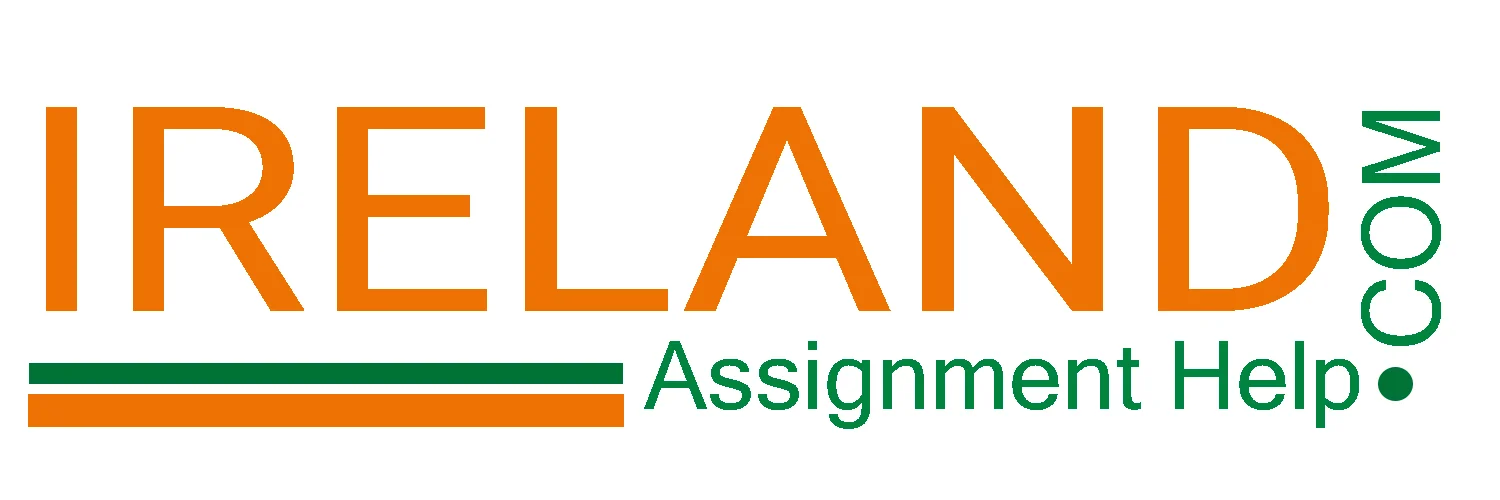ECI Policy in Action 23 July 2024
As we approach the midpoint of 2024, Early Childhood Ireland (ECI) continues to play a pivotal role in shaping policies that affect the early years and school-age care sectors. Our recent participation in a crucial consultation workshop, hosted by the Department of Children, Equality, Disability, Integration and Youth (DCEDIY), marks another significant step in our ongoing efforts to influence and improve early childhood education and care in Ireland.
This workshop, focusing on the Irish national plan for Irish language provision in Early Years (EY) and School Age Care (SAC), represents a critical juncture in the evolution of language policy in our sector. As we reflect on this event and its implications, we’re reminded of the importance of our collective voice in shaping the future of early childhood education in Ireland.

The Consultation Workshop: A Platform for Change
Last month, ECI had the privilege of participating in a consultation workshop that promises to have far-reaching effects on the landscape of Irish language education in early years settings. The workshop, conducted by the research team at Mary Immaculate College on behalf of the DCEDIY, was designed to gather insights and perspectives on what the Irish national plan for Irish language provision in EY and SAC should entail.
This interactive event provided a valuable platform for stakeholders like ECI to voice their views and concerns on various aspects of the proposed National Action Plan. The topics covered were comprehensive, addressing both the opportunities and challenges that lie ahead:
- Advantages and Disadvantages of the National Action Plan
- Challenges associated with implementing the plan
- Existing resources for Irish language provision in EY and SAC settings
- Additional resources required to support the plan
- Ensuring equality and inclusion in EY and SAC
- Addressing the needs of both native Irish speakers and those learning Irish as a second or additional language
The depth and breadth of these discussions underscore the complexity of the task at hand. As we work towards a more inclusive and effective approach to Irish language education in early years settings, we must consider all perspectives and potential outcomes.
Hire an Irish Assignment Writer to Write your Essay, Thesis & Other Academic Papers
The Context: First 5 and the 5 Year Action Plan
To fully appreciate the significance of this consultation, it’s important to understand its context within broader national strategies. The proposed national plan for Irish language provision in EY and SAC is not an isolated initiative, but rather a natural progression of commitments made in two key policy documents: First 5 and the 5-Year Action Plan for Irish Language 2018-2022.
First 5: A Whole-of-Government Strategy
First 5, Ireland’s whole-of-government strategy for babies, young children and their families, includes specific commitments related to Irish language provision in early years settings. These commitments focus on two main areas:
- Ensuring access to Irish-medium EY and SAC provision for children in Gaeltacht areas
- Developing mechanisms to provide Irish-language support in EY settings with high proportions of children learning through Irish
These commitments reflect a recognition of the importance of early exposure to the Irish language, both for native speakers and for those learning Irish as an additional language. By prioritizing Irish language provision in early years settings, First 5 aims to lay a strong foundation for lifelong engagement with the Irish language.
The 5-Year Action Plan for Irish Language
Complementing the commitments in First 5, the 5-Year Action Plan for Irish Language 2018-2022 outlined specific measures to support Irish language provision in early years settings. These include:
- Increased support for Irish language provision in Early Years, including the appointment of two specialists within the DCEDIY
- Further investment in Comhar Naíonraí na Gaeltachta to better support Irish-medium early years provision in Gaeltacht areas
- Increasing the maximum level of capital funding for early years projects in the Gaeltacht from 80% to 95% under the Department’s Community and Language Supports program.
- Providing additional resources to Tuismitheoirí na Gaeltachta to support families raising children through Irish in Gaeltacht areas
These measures demonstrate a concerted effort to strengthen the infrastructure supporting Irish language education in early years settings, particularly in Gaeltacht areas.
Scared with Looming Deadline, Buy Plagiarism Free Paper Writing Services Now
The Consultation Process: Gathering Diverse Perspectives
The recent consultation workshop is just one part of a broader effort to gather input from stakeholders across the EY and SAC sectors. In addition to the workshop, the DCEDIY conducted surveys from 6 June to 12 July, providing another avenue for stakeholders to contribute their thoughts and ideas.
This multi-pronged approach to consultation reflects a commitment to inclusive policy-making. By seeking input through various channels, the DCEDIY aims to capture a diverse range of perspectives, ensuring that the resulting national plan is responsive to the needs and realities of the sector.
Key Issues and Considerations
As we reflect on the consultation workshop and the broader context of Irish language provision in EY and SAC, several key issues and considerations emerge:
Balancing Native and Second Language Learners
One of the central challenges in developing a national plan for Irish language provision is addressing the diverse needs of both native Irish speakers and those learning Irish as a second or additional language. This requires careful consideration of pedagogical approaches, resource allocation, and support structures to ensure that all children can benefit from Irish language exposure in early years settings.
Resource Allocation and Development
The consultation highlighted the need to assess existing resources for Irish language provision in EY and SAC settings and identify areas where additional resources are required. This could include teaching materials, language support tools, professional development opportunities for educators, and technology-enhanced learning resources.
Equality and Inclusion
Ensuring equality and inclusion in Irish language provision is paramount. The national plan must consider how to make Irish language learning accessible and engaging for children from diverse backgrounds, including those with special educational needs or from non-Irish-speaking families.
Workforce Development
The success of any Irish language provision plan will depend heavily on the skills and confidence of the EY and SAC workforce. Consideration must be given to how best to support educators in developing their Irish language skills and pedagogical approaches for language immersion or bilingual education.
Continuity from Early Years to Primary Education
While the focus of this consultation was on EY and SAC settings, it’s important to consider how the national plan will align with and support children’s transition to primary education. Ensuring continuity in Irish language education across these stages will be crucial for long-term language development.
Parental Engagement and Community Support
The role of parents and the wider community in supporting Irish language learning cannot be overlooked. The national plan should consider strategies for engaging parents and leveraging community resources to create a supportive environment for Irish language development.
Monitoring and Evaluation
As with any national initiative, it will be crucial to establish robust mechanisms for monitoring the implementation of the plan and evaluating its impact. This will allow for ongoing refinement and improvement of Irish language provision strategies.
The Road Ahead: From Consultation to Action
As we await the publication of the DCEDIY’s report on the consultation findings, ECI remains committed to monitoring the progress of the national plan. Our participation in this consultation process is just one aspect of our ongoing work to influence policy and practice in the early years and school-age care sectors.
The development of a national plan for Irish language provision in EY and SAC represents a significant opportunity to strengthen the foundation of Irish language education in Ireland. By starting early and providing comprehensive support in early years settings, we can nurture a new generation of confident Irish speakers and cultural ambassadors.
The Role of ECI in Shaping the Future
As we look to the future, ECI will continue to play a vital role in shaping policies that affect the early years and school-age care sectors. Our participation in consultations like this one ensures that the voices and experiences of our members are heard and considered in the policy-making process.
The development of the national plan for Irish language provision is just one of many policy areas where ECI is actively engaged. We continue to participate in various DCEDIY consultations, including recent discussions on the Single Agency and Administration and Regulatory Requirements.
As always, we encourage our members and stakeholders to stay informed and engaged with these important policy developments. The future of early childhood education in Ireland is being shaped today, and your voice matters.
Get 100% Unique Assignment Papers for Your College & Get Good Grades
Looking Ahead: The Next Steps
In conclusion, the recent consultation workshop on Irish language provision in EY and SAC settings marks an important milestone in our ongoing efforts to enhance early childhood education in Ireland. As we await the next steps in this process, ECI remains committed to advocating for policies and practices that support the holistic development of all children, including their linguistic and cultural growth.
We encourage all stakeholders in the early years and school-age care sectors to stay engaged with this important issue. Your experiences, insights, and ideas are invaluable in shaping a national plan that truly meets the needs of our children, educators, and communities.
Together, we can ensure that the rich linguistic heritage of Ireland continues to thrive, starting with our youngest learners. The future of the Irish language begins in our early years settings, and with your support and engagement, we can make that future bright indeed.
Frequently Asked Questions (FAQs)
1. What does ECI mean in education?
Early Childhood Ireland, or just ECI, is basically the big network that brings early-years and after-school educators together. It’s not a government office — more like a collective voice for people working with children every day. They speak up when new policies are drawn up, share training, and help settings stay connected. You could say they’re the link between classrooms, crèches, and the policymakers in Dublin.
2. What is the ECI process?
It’s not one straight road, really. They start by listening — asking members what’s actually happening in centres and after-school clubs. Then they take those views into the big consultations with the DCEDIY, feed back ideas, and push for practical change. It’s steady work, a mix of research, policy writing, and keeping people in the loop. Nothing flash — just real advocacy done properly.
3. How does the ECI Policy in Action improve early childhood education?
Think of it like turning talk into practice. Policy in Action bridges what’s written in those long reports and what happens in real rooms — the messy, noisy, lovely ones full of children. It makes sure funding, training, and Irish-language plans don’t stop on paper. The improvements show up in daily life: fairer support for educators, more inclusive play, and families who feel listened to.
4. What are the main goals of the ECI Policy in Action?
The aim’s simple enough — raise quality across the board and make early-years education fair for every child. That means good working conditions, proper resources, and equal chances for children in every county. It’s also about keeping culture alive — especially the Irish language — and joining the dots between families, educators, and government. ECI’s goals’s always the same: small changes that last.
5. What recent updates or changes have been made to the ECI Policy in Action?
Most of the recent buzz is around the Irish-language consultation. ECI sat down with DCEDIY and the team from Mary Immaculate College to talk about how children use Irish in early-years and school-age care. The push now is to build real support — not just ideas — so kids in Gaeltacht areas and outside them get equal access. Feels like a proper shift this year, not just words.
6. How does ECI Policy in Action support teacher training and workforce development?
It’s pushing for respect, really — for the people doing the work. ECI keeps calling for funded upskilling, paid time for training, and clearer routes from Level 5 upwards. They’re trying to stop good staff from burning out or leaving. Think of it as passing the torch — policy gives the plan, but ECI makes sure educators have the skills and confidence to keep it alive in real settings.
7. What does the ECI Policy in Action actually cover for the assignment?
Sure! Basically, it’s about shaping Irish language provision in early years (EY) and school-age care (SAC). Think of workshops and consultations like the one in July 2024, where ECI and DCEDIY gathered input to improve Irish-medium care. You could mention examples like Gaeltacht support or Irish language resources for EY classrooms.
8. How can I explain the link between First 5 and the 5-Year Action Plan in my essay without sounding too technical?
Keep it simple. First 5 is the whole-of-government strategy for kids, and the 5-Year Plan focuses on boosting Irish language provision. You might say, “First 5 sets the big-picture goals, and the 5-Year Plan shows how we put them into action in classrooms and SAC centres.”
9. Can someone do my research for me by including real Irish examples in my assignment?
Yeah, absolutely. You can get expert help from Ireland Assignment Help — their writers include real Irish examples, case studies, and local policies to make your research sound authentic. They use genuine HSE data, Irish legislation, and education or health settings, so your assignment feels grounded and fully relevant to Ireland.
10. How do I explain workforce development in Irish language EY settings in a way that’s student-friendly?
Think of it like this: teachers and staff need the skills and confidence to teach through Irish. You could write about upskilling programs, Irish immersion training, or support for bilingual classrooms. Mention that supporting educators directly helps children thrive.
11. Can someone help me complete my assignment section on equality and inclusion in Irish language provision?
Yes, that’s totally possible. The team at AI-Free Assignment Help in Ireland can help you write about equality, diversity, and Irish language inclusion without sounding robotic. They’ll link it to Irish education acts and real classroom examples so your essay meets QQI standards while staying 100% human-written.
12. What’s the best way to include parental engagement and community support in my essay?
Make it relatable. Parents and communities help keep Irish alive—think Irish classes, community events, or family support networks. You can explain that active parental involvement improves language outcomes and supports cultural growth.
13. How do I tackle the monitoring and evaluation part without making it boring?
Keep it practical. Mention things like regular checks on Irish language programmes, surveys with educators, or feedback from parents. You could add, “It’s like keeping an eye on how well the plan is actually helping kids speak Irish confidently.”
14. Can someone write my section on balancing native and second-language learners in EY and SAC?
Sure thing. Expert writers at Ireland Assignment Help know how to frame that balance using real Irish Early Years (EY) and School Age Childcare (SAC) settings. They blend theory with practice — showing how educators support both native Irish speakers and newcomers — keeping your section clear, natural, and Turnitin-safe.
15. Can anyone help me explain continuity from early years to primary education?
Think of it as a handover. Kids start in Irish-medium EY and SAC settings and then move to primary school. Your essay could explain how aligning language programs across stages ensures children don’t lose progress and stay confident in Irish.
16. How can I add credibility to my assignment using the July 2024 ECI consultation workshop?
Reference it as a real event where policy changes were discussed. Mention stakeholders, research teams, or topics covered, like resource allocation or workforce development. It shows you’re not just repeating theory—you’re linking assignments to current Irish policy developments.


